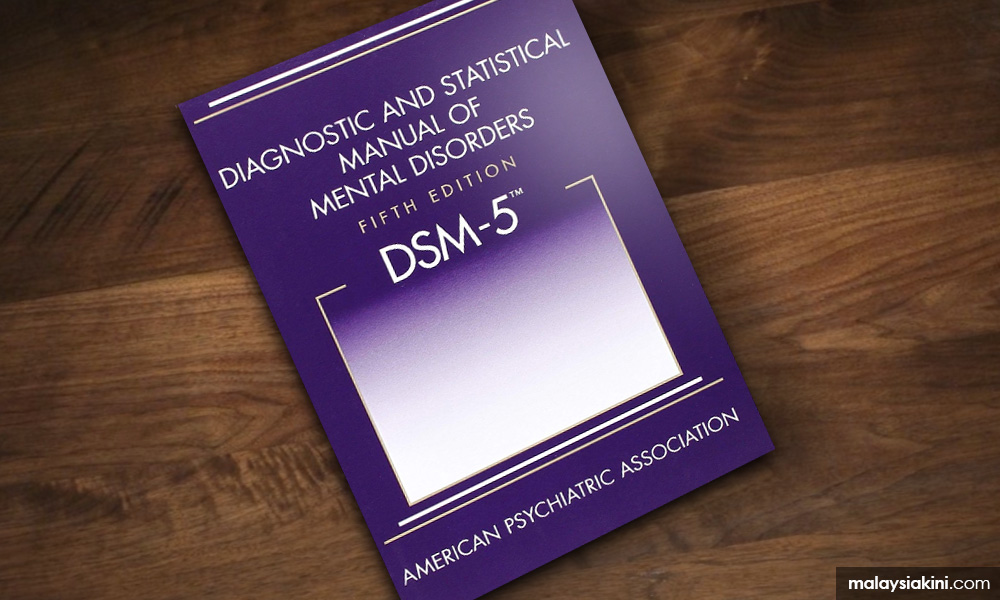COMMENT | Life is unequivocally difficult, painful and unfair to us in many ways. Death, illnesses, goodbyes, failures and shame are some of the bitterness that we might have tasted without hitting rock bottom.
When any of these instances occur, we feel as if there is chaos overwhelming us and pushing us into a rabbit hole or even to the edge of insanity.
In most societies, having a mental health problem is considered abnormal, but in fact, it is more common than we think.
According to the World Health Organization (WHO), one in four people will experience a mental health problem in their lifetime.
This means it is likely that someone in your social circle, such as a family member, friend, colleague, or classmate, has experienced a mental health problem or is currently experiencing one.
In my view, it is normal to experience psychological disturbances in the face of adversity. However, there is a real difference between experiencing a psychological disturbance and a mental health disorder which is characterised by a clinically significant disturbance. To assess this requires clinical training as there are multiple factors that psychologists need to consider.
The Diagnostic and Statistical Manual of Mental Disorders (DSM-5) defines a mental disorder as:
“… a syndrome characterised by clinically significant disturbance in an individual's cognition, emotional regulation, or behaviour that reflects a dysfunction in the psychological, biological, or developmental processes underlying mental functioning.

"Mental disorders are usually associated with significant distress in social, occupational, or other important activities. It does not include culturally approved response to a common stressor or loss, socially deviant behaviour (e.g., political, religious, or sexual) and conflicts that are primarily between the individual and society unless the deviance or conflict results from a dysfunction in the individual, as described above.”
Development of mental health problems
The majority of mental disorders emerge before the age of 18, during childhood or adolescence. Psychologists, in general, view that the development of mental health problems in childhood or adolescence depends largely on childhood experiences, as these experiences shape one’s thinking, behaviour and learning patterns.
This point of view is rooted in a Western perspective known as the 'biopsychosocial' model, which holds that mental health problems are caused by an interaction of biological vulnerability and psychosocial stress.
Bear in mind that although mental disorders can be genetic, the environment is what ultimately activates the development of mental disorders.
Since the majority of child development takes place at home, families play a huge role in both preventing and precipitating the development of mental health problems during childhood or adolescence.
For example, research shows that caregivers who are sensitive and responsive to their children’s emotional and physical needs are more likely to have children with more cognitive and emotional competence. Their children will be better at coping with stress and are more likely to experience more positive relationships throughout their course of life.
Besides good caregiving, the quality of communication within the family is also important. Children who grow up in an environment where family members communicate their needs in a clear and direct way instead of using sarcasm, criticism or other indirect ways of communication, will be more open towards talking about their difficulties with the family.
Moreover, establishing healthy boundaries between parents and children are crucial in a family. If boundaries are set, but can be broken at any time by parents, the children’s mental health will suffer from having to always fulfil parents’ emotional needs while their own needs are unmet.

Given these points, it is clear that the role of the family in mental health must not be underestimated and must be given due regard in mental health prevention strategies.
Cultural perspective
Although the Western perspective provides a great explanation of mental health problems, this is a somewhat incomplete explanation in the context of Malaysia, where religion and spirituality are central in the tradition of many communities.
These religious and spiritual beliefs in turn influence responses to health problems. For example, praying and getting closer to God are often regarded as essential coping mechanisms, even an antidote to mental health problems, especially in the Malay-Muslim community.
This belief is often tied to an attitude of reluctance in seeking help from a mental health professional. Some might see this as a barrier, but I think it highlights the fact that culture (which includes religion and spirituality) should be recognised for its importance in the Malaysian healthcare system.
Besides impacting coping styles, sources of help, and a person’s tendency to seek help, culture impacts how mental illness is understood; how symptoms are communicated; the presence of social support; the level of stigma attached to mental illness; the progress made during treatment; and how treatment services are designed.

In New Zealand, health and mental healthcare approaches consider both Western and indigenous perspectives. Their health sector has widely accepted and utilised the Te Whare Tapa Whā model for the care of New Zealanders especially the Māori, the local indigenous peoples.
According to this model, any health problem is a result of an imbalance between four pillars of Māori health, namely spiritual, physical, mental/emotional, and family/extended family. Hence, treatment of a Māori patient is designed to restore balance by addressing the problems identified in each dimension.
The New Zealand government has invested in providing healthcare that is culturally appropriate instead of imposing a Western-oriented healthcare system on their indigenous people.
This comes from an awareness of the role of culture and a sense of urgency to effectively help the Māori community.
Likewise, Malaysia’s healthcare system will be more effective in helping those in need when cultural factors are taken into account, and efforts are made to inculcate more holistic understanding, assessment and treatment of mental health problems.
In its 2017 annual report, the Health Ministry identified key priorities in its mental health agenda. These included fighting stigma associated with mental disorders, improving society’s mental health literacy, and changing attitudes towards mental health and mental illness. These targets suggest that the biggest challenge in tackling mental health issues in Malaysia is, in fact, Malaysians.

I believe that healthcare providers in Malaysia need to work for the people rather than only focusing on changing people to fit the existing system. One cannot proceed without the other as both are equally important in addressing mental health issues in Malaysia.
Be the solution
Many resources will be invested in changing us Malaysians as opposed to improving our mental healthcare system. However, the challenges we pose as a society are nonetheless still very serious, ranging from strong stigma associated with mental disorders, to discrimination of mentally ill persons in the workplace.
Fortunately, the paradox is that we are also the solution.
As a concerned Malaysian, I urge you to make it your responsibility to educate yourself on mental health, whether it be in the form of learning to recognise symptoms of mental health problems, or learning how to support and guide someone to seek professional help. Simply being kind to those with mental illness also goes a long way – no effort is too great or too small.
Mental health problems are distressing to both individuals and their families. Each and every one of us can ease their burden by standing together with them and supporting them, instead of stigmatising them for being ill.
Bersatu kita teguh, bercerai kita roboh (United we stand, divided we fall). Together, we can put an end to mental health stigma and discrimination.
ANIS AZIZI is an intern at Penang Institute in Kuala Lumpur. She recently graduated with a Bachelors of Science in Psychology from the University of Auckland and will soon continue her education in postgraduate level. While in New Zealand, she founded an online platform for university students to share and find support for various issues, including mental health. Her research interests are primarily mental health and social sustainability.
The views expressed here are those of the author/contributor and do not necessarily represent the views of Malaysiakini.

